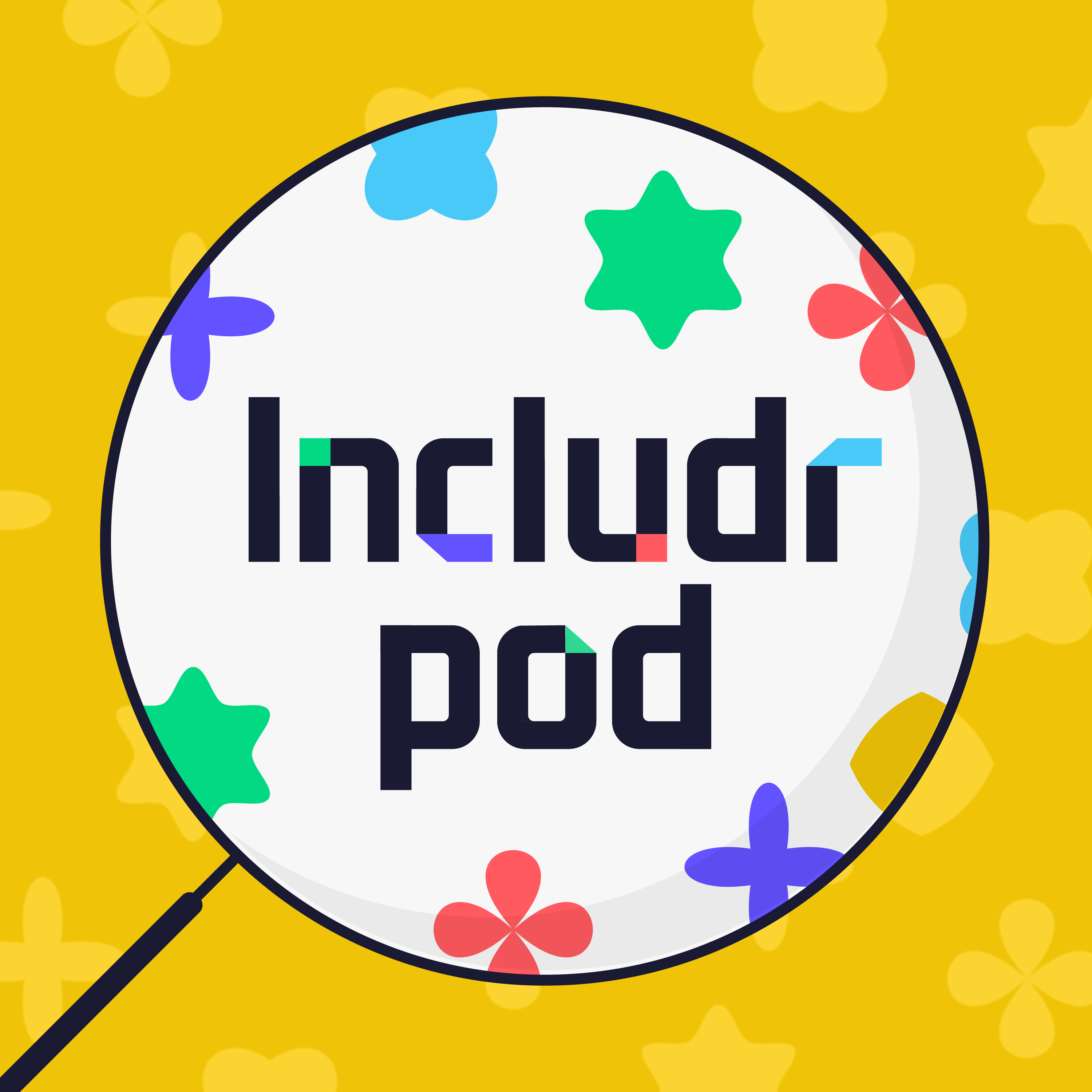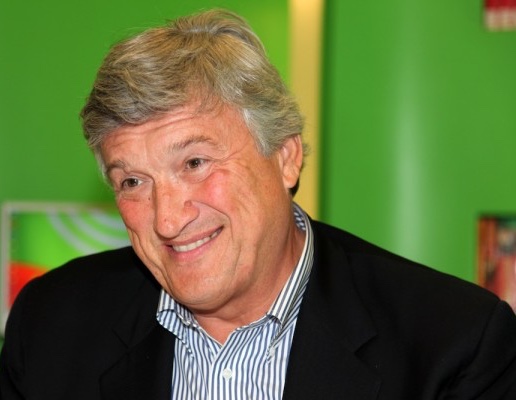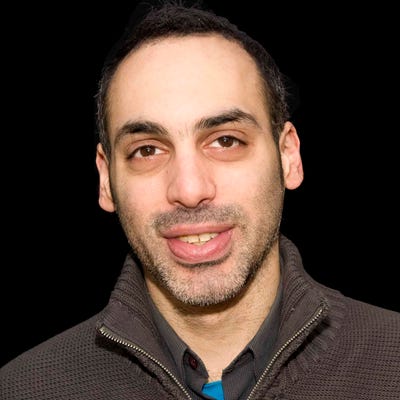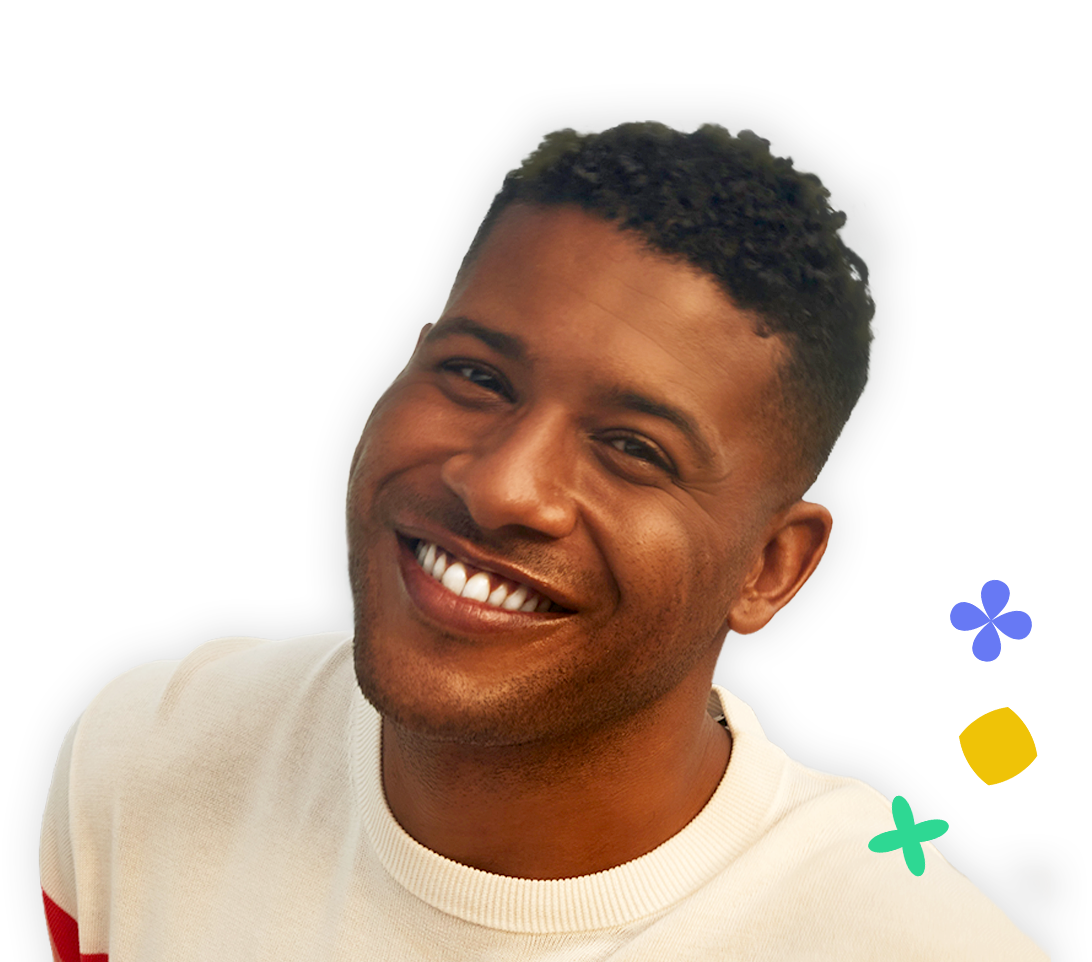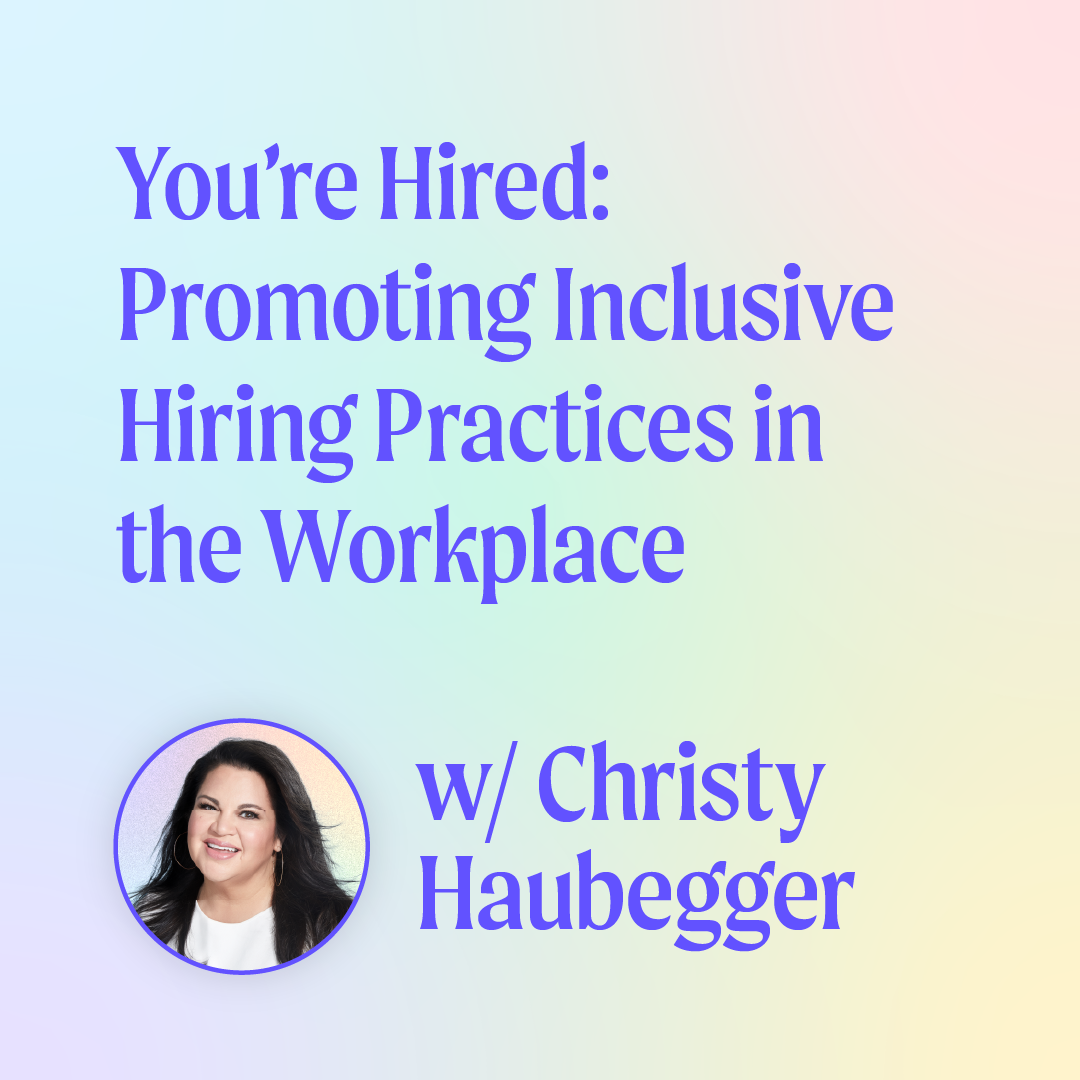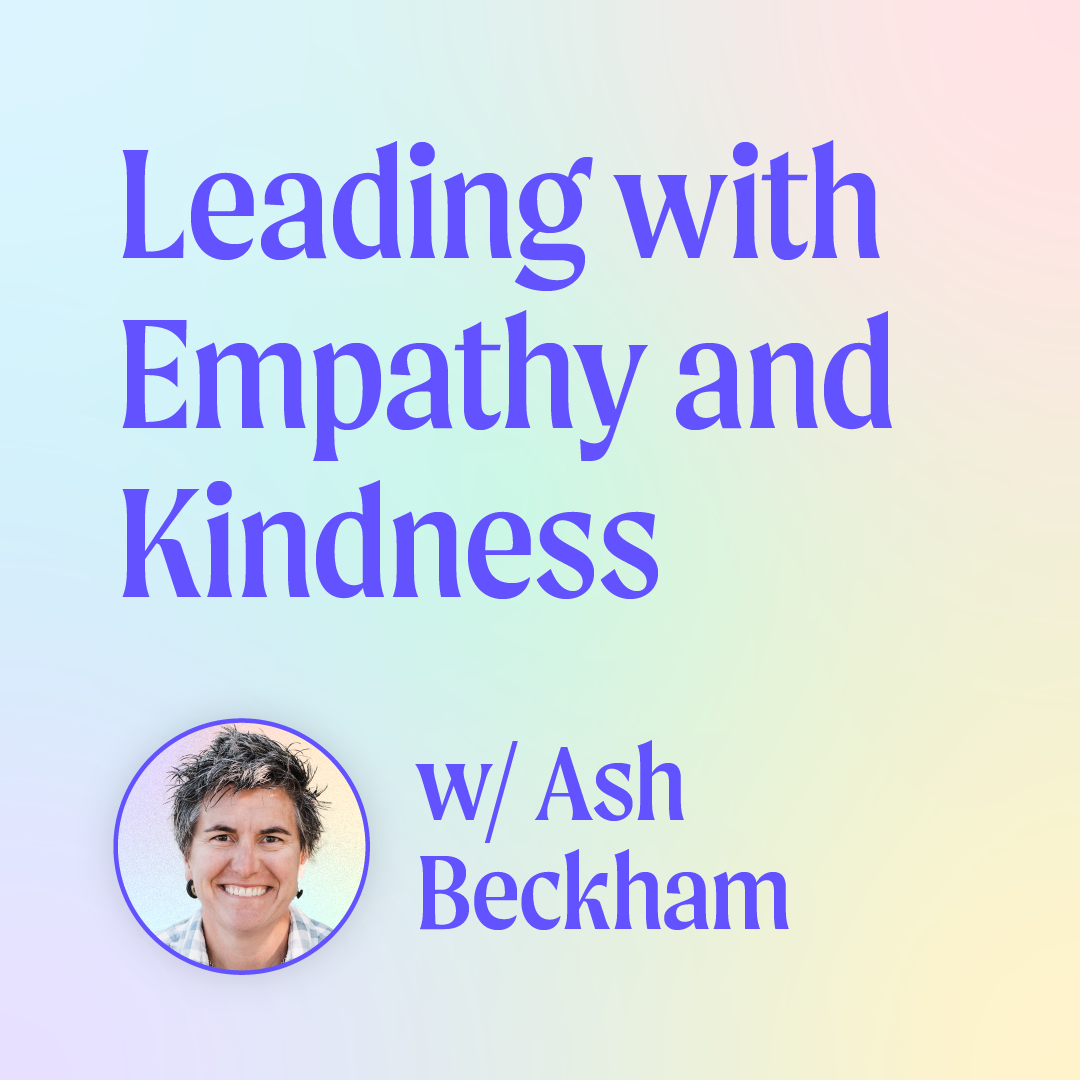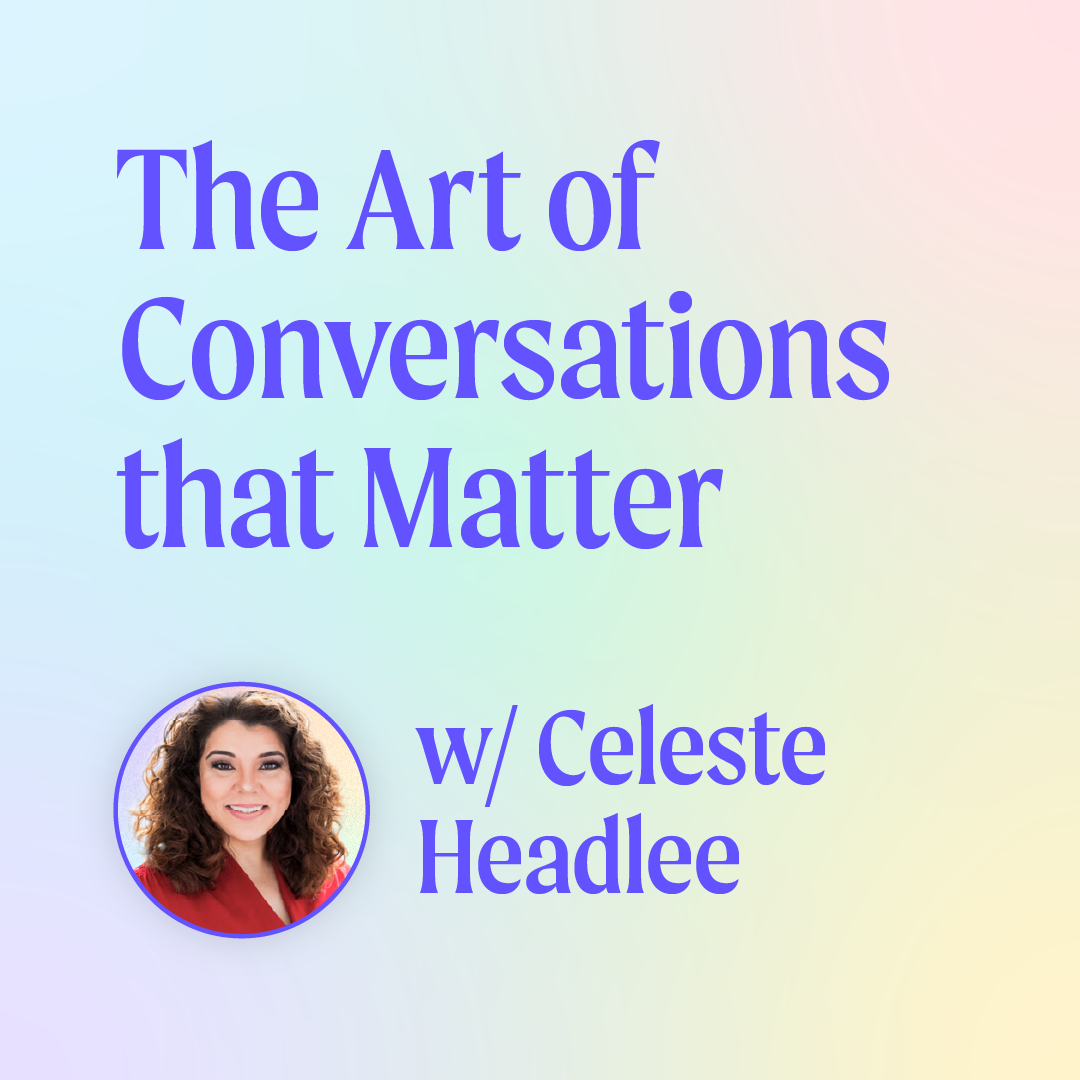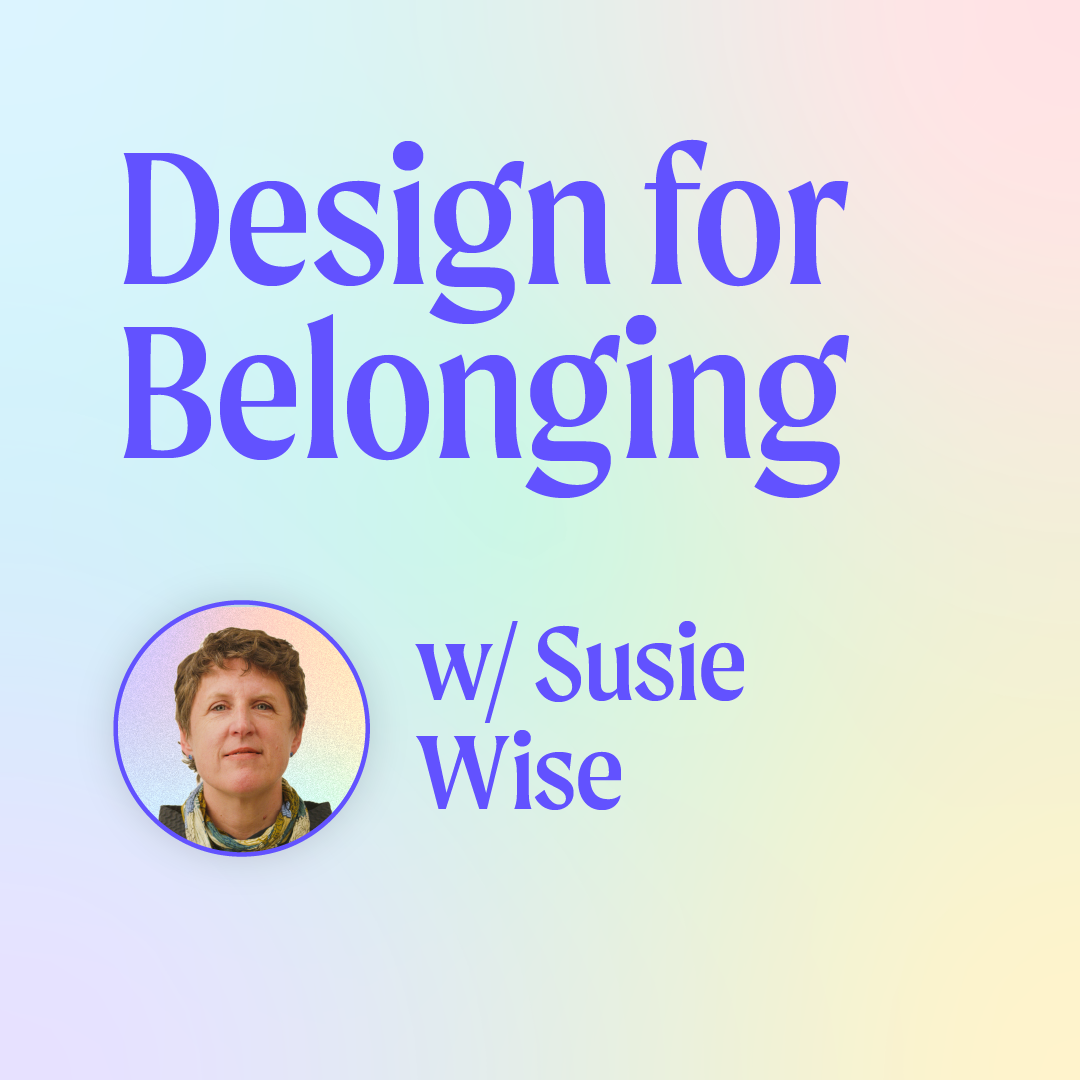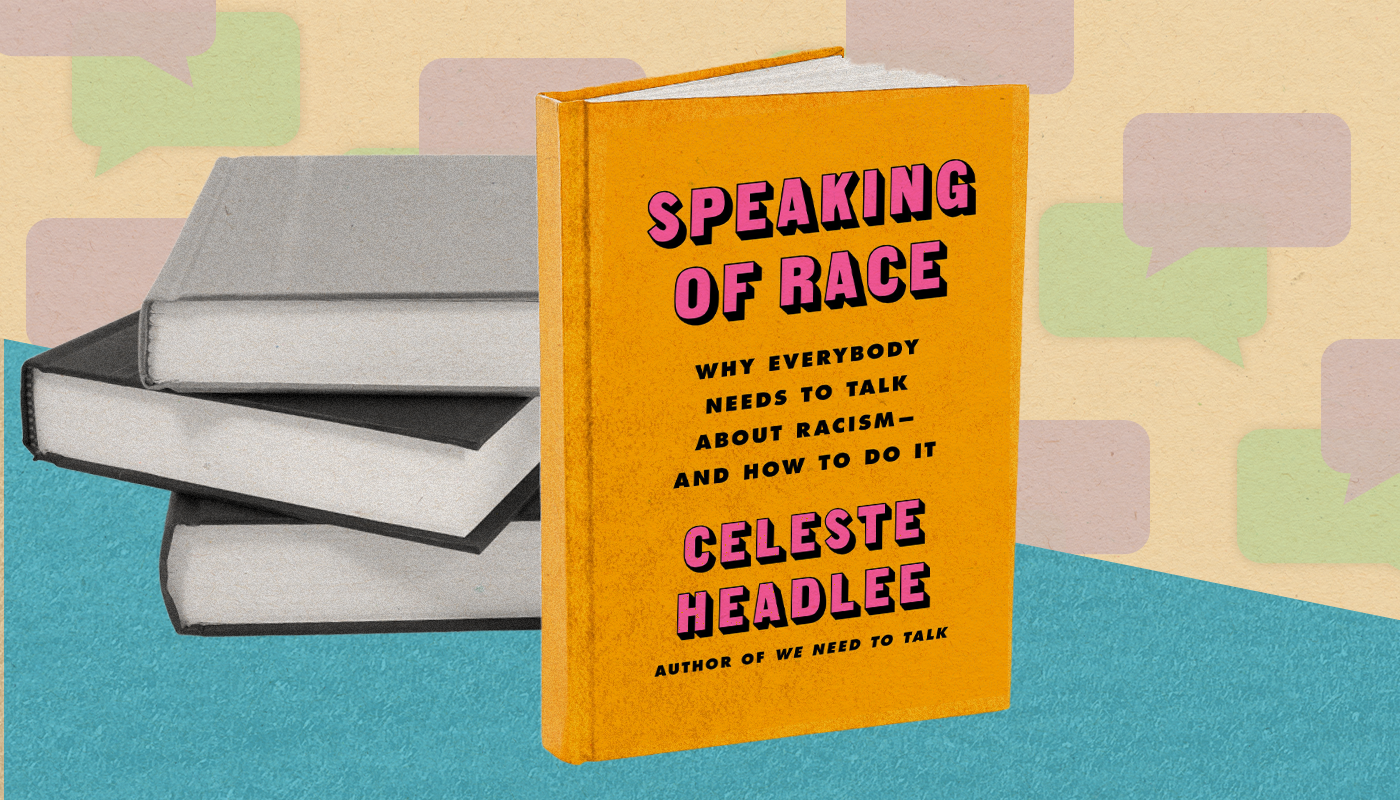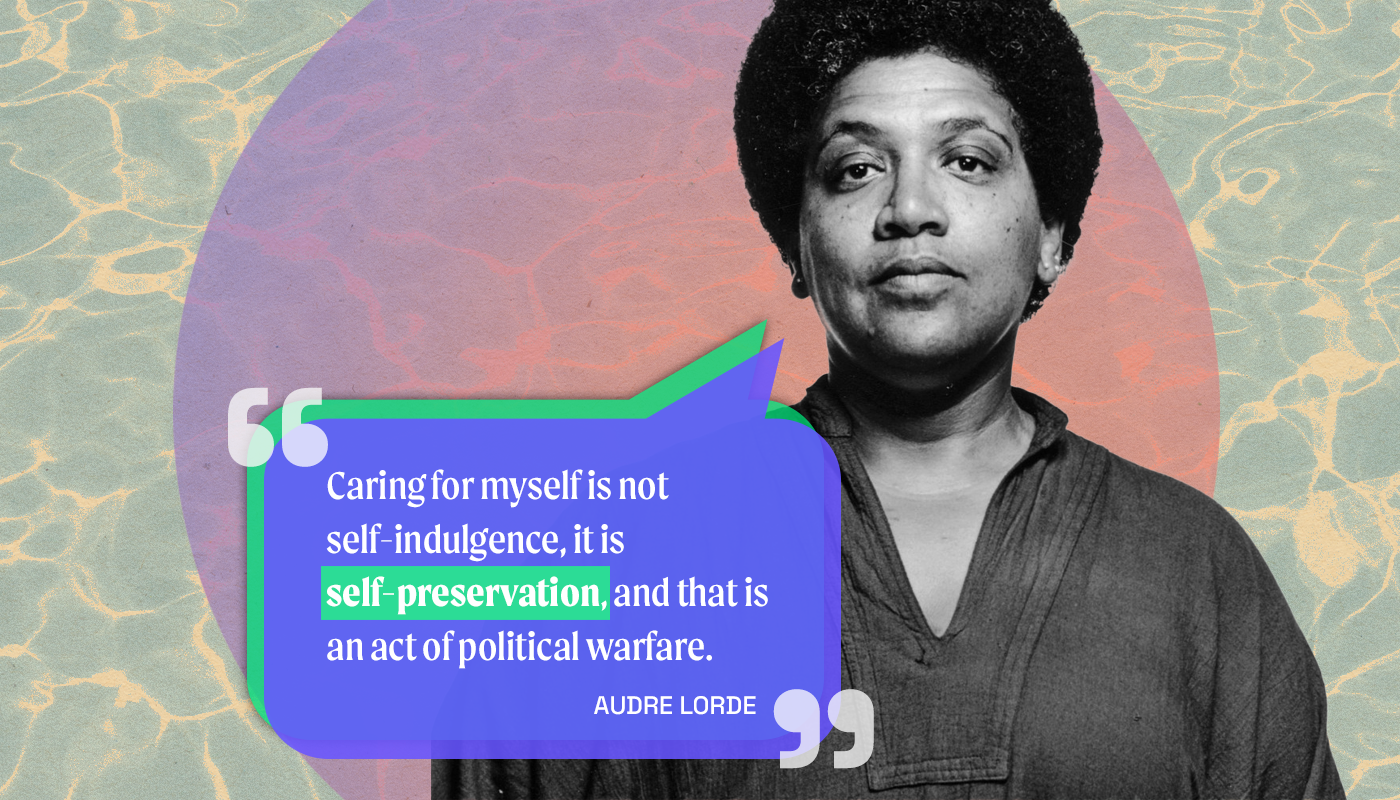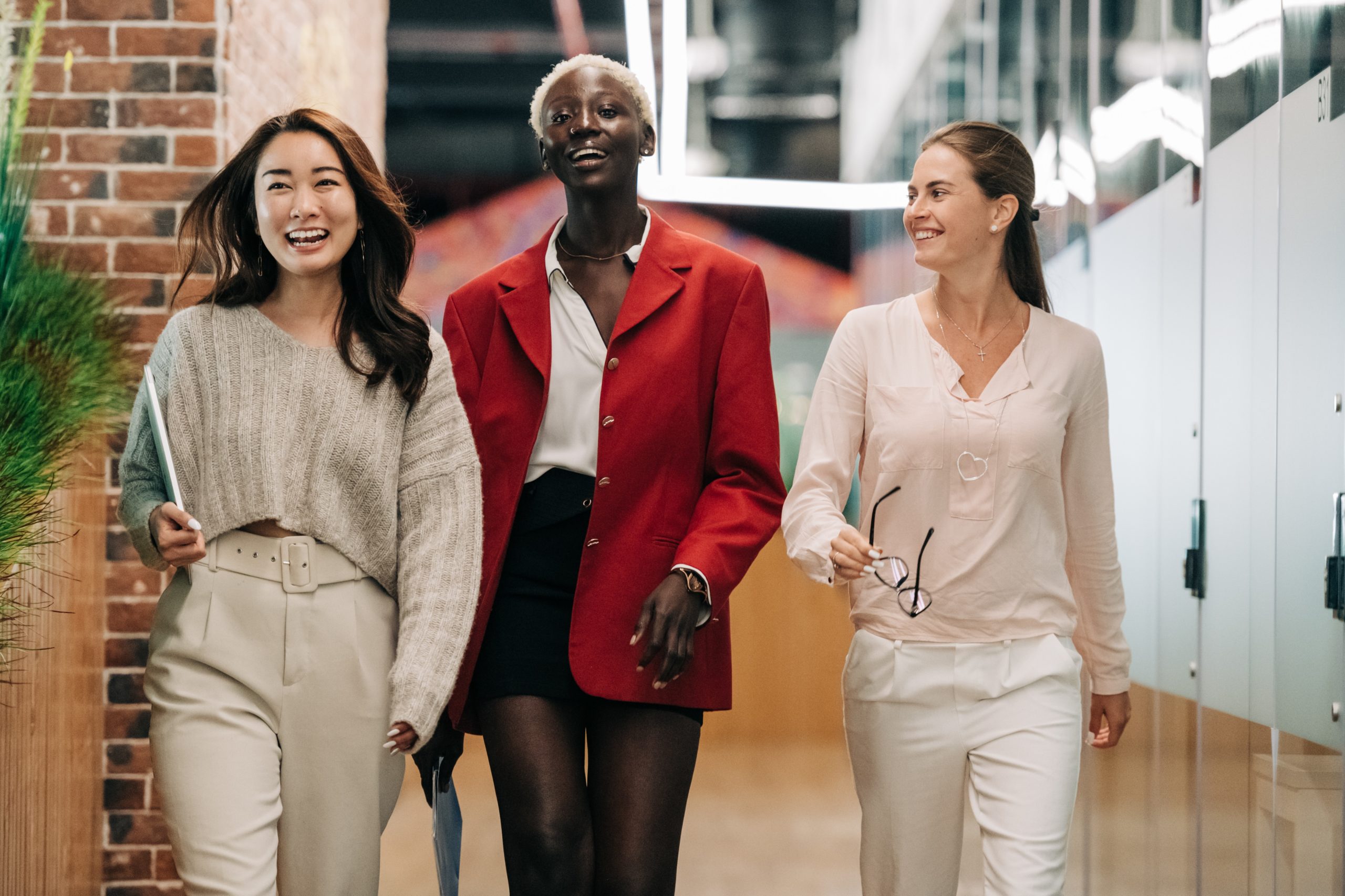Compassionate Spaces = Better Workplaces
Episode Description
When we feel psychologically safe, we feel free to speak our minds without risking criticism or dissent. It means we feel accepted as our true selves unconditionally, and we can be comfortable being open, honest and vulnerable. On this episode of IncludrPod, Jeffrey sits down with two special guests to discuss psychological safety and how it relates to inclusion in the workplace. Gus Alexiou is a journalist who regularly contributes articles about equity, diversity and inclusion to Forbes. After being diagnosed with multiple sclerosis at the age of 26, Gus was exposed to the injustices people living with disabilities regularly experience at work. To help put Gus’s story in perspective, neurosurgeon, author and entrepreneur Dr. James R. Doty is also here with us today. Throughout his career, Dr. Doty has studied the neural bases for compassion and altruism, and he believes one of the major problems in our society is that people don’t feel psychologically safe. Dr. Doty shares his take on the impacts of psychological safety and how we can all begin to create it from within.
On Air With
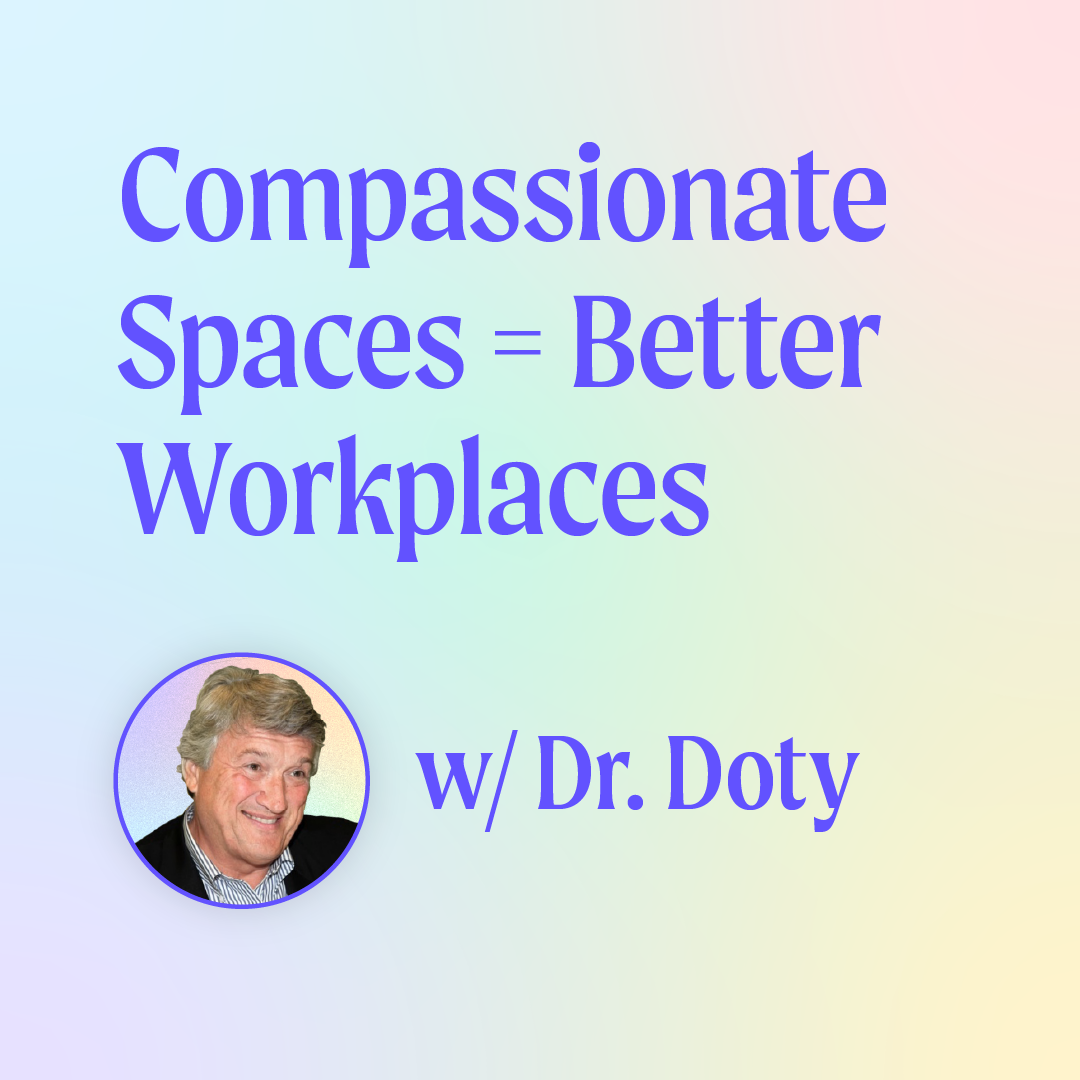
Episode Transcript
While IncludrPod is audio-based content, we’ve also transcribed each episode so everyone can enjoy the series. If you can choose, we recommend listening to the audio, which may include emotion and emphasis that cannot be captured on a page. Transcripts are generated using a combination of speech recognition software and human transcribers and may contain errors. Please check the corresponding audio before quoting in print.
Jeffrey This is IncludrPod, a podcast that explores inclusivity, diversity and how to find common ground with just about anyone all through a scientific lens. I’m your host, Jeffrey Bowyer-Chapman. I’m an actor, podcaster, model and guest judge on the hit TV series RuPaul’s Drag Race. As a Black queer man, I know firsthand that with deep inclusion and acceptance from others, I can show up not only as my best self, but as my whole self. Creating a safe space is the foundation of authenticity. And everyone is welcome here. Welcome to the IncludrPod.
Speaker 1 When I first started working there almost four years ago now, I was afraid to ask people to use they them pronouns for me because I wasn’t sure how they would react and all it took was to see them welcome an openly trans person to the space and also no one trying to get that person to explain anything being related to trans.
Speaker 2 It’s good to see a build in awareness of being of hiring BIPOC crew or BIPOC like head of departments. It helps create a different perspective and a sense of authenticity to a story they’re trying to tell. Although we’re not at a place that we are happy with yet because I feel like there still needs to be more diversity in hiring.
Speaker 3 I make sure that I’m in a team where there’s a lot of diversity and so I do feel very inclusive specifically when I’m able to address issues or if I see other folks of color or queer folks. I think that that makes the biggest difference because sometimes I think that there are issues that you will face. And I think like coming from, you know, a background where you are a person of color, it’s difficult to sometimes explain situations to white people or to straight people. If you have coworkers or friends or advisors who are part of these community, I feel like there is a sense of solidarity.
Jeffrey Feeling safe in our environments is something many of us are lucky enough to take for granted today. While we all know physical safety means feeling confident that no harm will come to your body through danger or violence. Psychological safety can be a little less tangible and difficult to quantify. When we feel psychologically safe we feel free to speak our minds without risking criticism or dissent. It means we feel accepted as our true selves unconditionally and we can be comfortable being open, honest and vulnerable. Today on IncludrPod, I’ll be speaking with two special guests about psychological safety and how it relates to inclusion in the workplace. Gus Alexiou, is a journalist who regularly contributes articles about equity, diversity and inclusion to Forbes. After being diagnosed with multiple sclerosis at the age of 26, Gus was exposed to the injustices people living with disabilities regularly experience at work. He decided to speak out against this unfair treatment, becoming an advocate for others who live with disabilities. And he’s here to share his story today. To help put Gus’s story in perspective, I also sat down with Dr. James R. Doty. Dr. Doty is a physician, neurosurgeon, author, inventor, philanthropist, entrepreneur, consultant and no, I’m not done quite yet, the founder and the director of the Center for Compassion and Altruism, Research and Education, CCARE at Stanford University. Throughout his career, he studied the neural basis for compassion and altruism and he believes that one of the major problems in our society is that people don’t feel psychologically safe. According to Dr. Doty, our physiology actually works better when we feel psychologically safe, which means psychological safety is directly linked to our physical and mental health. Now let’s get into the episode. First, we’ll be hearing from Gus, who was kind enough to open up and share the details of his story with us.
Gus My name is Gus. I have MS. I was diagnosed with MS at the age of 26. I pursued a career in sales and marketing for, I would say, three or four years after graduating. Intersecting that I was diagnosed with multiple sclerosis. And then this completely changed my career pathway and put it into a bit of a tailspin. I was 25, I previously had really zero days of ill health in my life. I had just started a new role and I was experiencing eyesight problems and I didn’t understand what it was about. And I thought at first I might need glasses and, you know, because I’d never worn glasses before I didn’t know and I hadn’t spoken to people who wore glasses about what it’s like to go to the point where you start to use glasses. I thought I’d need glasses but when I went to an optician, I was told that there was actually potentially anyone with my eye more than something wrong with glasses. And eventually I was told actually it wasn’t something wrong with my eye. There was something wrong with my brain and that the nerve signals were not going to the eye properly. In the early days of that work environment, it wasn’t actually a very severe disability but it was something that was quite shocking to somebody who was young and had previously been totally able bodied. So I could still see I could probably still drive if I wanted to because we live in the age of the internet. So, you know, 20 years before that, this would have been something that would have come out through conversations with doctors but, you know, once I had a little snippet of, you know, how we all are these days, you get a little snippet of information about something and you can Google it and then you build around, you build up your own, can build up your own picture. So, you know, I did internet searches and I found out that the symptoms I was experiencing are often linked to multiple sclerosis.
Jeffrey Receiving a life changing diagnosis in your 20s or at any age would be a challenge for anyone but for Gus, it was even tougher since he had just started out a new job where things already felt unfamiliar and foreign to him. In addition to the uncertainty he was facing, Gus was dealing with the heavy burden of physical and psychological distress associated with his condition and his coworkers didn’t know him well enough to understand or offer genuine support.
Gus That was a very hard few months because I was I was working in a new environment and people that was working with me didn’t really have a baseline to compare me to and say, well, Gus was like this last year and this is what it’s like to work with Gus in normal times and now we can see he’s not very well. It was kind of having these problems from the start of my work there. So that was very very tough. That’s never easy, really. You know, the disease progresses, it changes different symptoms that weren’t there before pop up. So there are new challenges. So yes, life with MS is always a roller coaster.
Jeffrey At work, Gus hoped his coworkers would be supportive and helpful but he quickly realized that they were just as confused about how to deal with the situation as he was. The company had little, if any, structure in place for supporting an employee with a disability and Gus felt he was ultimately being left to his own devices.
Gus It was almost as if it was as foreign to them as it was to me. And this was the kind of slightly sad thing because you’d think in a workplace they have a kind of pathway by which this is managed. What if, what if our employee gets ill? People often think about workplace disability and they think about, well, this company has recruited somebody in a wheelchair and you know, they know that they know that the person is in a wheelchair and, you know, they want them in their workplace culture. But actually, a lot of these illnesses can kind of transpire at work. So it’s not actually even so much dealing with the disability per se because I wouldn’t classify myself as disabled at that time. I would classify myself as having the start of a disabling condition because you interview somebody who’s well and healthy. It doesn’t mean they’ll be well and healthy in the next couple of months and then in that situation, what are the pathways? It comes down to organizational structure, I think, and having processes in place and saying this is what we do in this condition, this is what we do in this situation, these are the questions we ask, these are the ways we proceed. Whereas I think, you know, people were left to manage it, including myself with a total free hand of, oh well, we’re beyond the looking glass here and we don’t know. We don’t know what we want to do. And this is foreign territory to us. And that’s how I was made to feel. Really, it was just really difficult. But with a lot of people, it’s hard to mention, you know, you sort of say that you’ve got MS and you hear in the background a little sigh, almost because people don’t quite know how to deal with it and people also don’t know MS totally, they assume it’s I don’t know, some people maybe assume it’s like Motor Neurone Disease where you’re going to be in a wheelchair in six months time or a years time. It’s actually a very, very sort of multifaceted condition. And there’s a million people in the world with MS and no two of us are the same. We’ve all got a different package of symptoms. So it’s just, you know, just wanting to feel that when you talk to people that you get a sense of feeling, “Hey, we’ve been here before, we’ve got this” which I didn’t, I didn’t have I have to say.
Jeffrey In other words, Gus didn’t feel psychologically safe at work as a result of his condition and the way people around him were dealing with it. However, Gus put it in slightly different terms than this. He explained that the phrase psychological safety has connotations of an imminent threat. When in reality the way these situations manifest in the workplace is more of a slow, insidious creep.
Gus First thing that comes to mind is it sounds like quite almost like a dangerous term like this, some if you just look at the words, there’s some sort of imminent danger. Actually, it’s not really so much about imminent danger. It’s much more about a kind of insidious creep where in the workplace kind of bad practices kind of crustify almost across an organization and become the norm. So it’s not that there’s immediate psychological danger for that person who’s not in a situation of psychological safety. It’s just that it leads to a certain kind of laziness across the whole organization and lack of motivation. So I think people, you know, maybe dig into the term a bit may easily misinterpret it and think it’s all about imminent danger and imminent panic and wrong with your boss about something. It’s not really, it’s not really about that. It’s this idea of it being all encompassing and because you have a disability in one area that must affect every other area of your life. And the example I love that someone once gave me from the past when talking about this thing was the kind of the death bricklayer or the wheelchair bound accountant. Actually, neither of those disabilities actually affect the person’s ability to do the job.
Jeffrey Gus’s story should serve as a reminder to us all that you can never truly know what someone else is struggling with and to always be as kind and supportive as you can in any situation. However, the story goes deeper than this. It’s a stark reminder that many of the systems we’ve come to rely on in our modern world are imperfect and in need of deep changes. But first, I wanted to know how we can define the term psychological safety and what it really means in a tangible sense. Dr. Doty offered a simple definition that helps put the term into perspective.
James This is a condition that is created that allows someone to not be afraid of being judged or accepted. And it includes recognizing the other person’s dignity, recognizing their humanity, treating them as if their voice is valid or their truth is OK. And, you know, when you can walk into a place and have somebody greet you when you walk into a “Hey, how are you? How can I help you? You know, is there anything I can do for you? You know, my job is to be there for you, etc.” And you go like, well, you know, you don’t have that sense that they’re assessing whether you’re wealthy, whether you’re poor, whether you’re Black, whether you should be, they should be afraid of you. And that sort of calms everything down.
Jeffrey Feeling accepted and understood as the foundation for psychological safety. Unfortunately for Gus, he didn’t always feel this way at work. And this is the case for many many others around the globe. I asked Dr. Doty for his opinion on Gus’s story and what we can all do to spark positive change in the workplace and beyond.
James Well, the reality is that may be the case and the system isn’t going to let them do that or there’s going to be resistance and that happens to many people. And if you look at the fight for human rights, it’s a long arc of a story and you may not be able to get what you want. But if it’s the right thing and people band together, you can ultimately change things. And there is nothing that isn’t changed unless it starts with one person. You have much, much more power than you think. You know, negative self-talk is a limiter. You know, when you say, I can’t, I won’t, it’s not possible, it’s like building a prison for yourself that takes away your self agency. To liberate yourself from that you need to change that dialog to make you understand that within you is an immense power and you can do anything with it. And oftentimes, once you recognize that you start seeing connections to other things, you start connecting with other people, you start talking about what’s possible and you’re not afraid to demand.
Jeffrey As the founder and director of the Center for Compassion and Altruism, Research and Education CCARE at Stanford University, Dr. Doty has a deep understanding of the nature of the human brain and a strong desire to empower others to become their best selves. But how did he become this way? And what motivated him to step outside of himself to help others? Like Gus, Dr. Doty has also faced struggle and hardship in his lifetime and feelings of being psychologically unsafe from a young age. Here’s his story.
James So I grew up in poverty. My family was on public assistance, essentially my entire childhood. My father was an alcoholic and my mother had had a stroke when I was a child and was partially paralyzed, was chronically depressed, had a seizure disorder, attempted suicide multiple times. I had two older siblings who on some level were quite distant in the sense of their connection to all of this because who wants to be connected to that necessarily? And of course, in those situations and I’m sure people have talked about adverse childhood experiences, this form of childhood trauma. And when you’re in that situation, of course, what happens is you get a feeling of hopelessness, despair, you feel isolated, you’re scared, you’re angry. And the other thing that happens is oftentimes children blame themselves for their situation that somehow they had done something. And so I lived through all of that and then I didn’t think I had a future. But what happened is I had an interest in magic as a child when the situation at my house became turbulent, I would get on my orange stingray bike and ride as fast as I could, as far as I could away from it. And on one of those journeys, I went by a strip mall and there was a magic shop there. And I walked into the magic shop and there was a woman a little bit overweight with long, wavy gray hair and glasses on the tip of her nose with a chain. And she was reading a paperback book and she looked up and she had this radiant smile and I asked her some questions about magic. And it turns out that the star was her sons. And she was just minding the store while he did some errands. So basically, she told me that she knew nothing about magic. But because of her very kind nature, we began a conversation. And the interesting thing is that as you can imagine from my type of a background, especially being a child, people judge you and make assumptions about you. And oftentimes an adult talking to a child is condescending or dismissive. But here is this lady who, like you immediately felt psychologically safe. You weren’t worried that she was judging you. You felt that you could say whatever you wanted and she treated you with respect, dignity, and she treated you like an adult. She said, you know, I’m here for another six weeks. If you come by every day, I think I could teach you something that could really help you. The first thing she taught me was the reality that I was always in fear mode. A sympathetic nervous system was chronically engaged because in my situation, I never knew what was going to happen. And if you don’t have any control over your circumstances and you don’t know what’s going to happen, your muscles are always tense. You’re always looking around. You don’t know when the next shoe is going to drop. Plus, the other thing that I was suffering from and I think a lot of people do suffer from and continue to suffer from is, I had a voice in my head telling me I wasn’t good enough. I wasn’t smart enough. It was not possible. And also, this was in the late 60s. So the term mindfulness, meditation, neuroplasticity were really not talked about. And in fact, in terms of neuroplasticity, not even a term that was used. But basically over the course of this period of time, she taught me a relaxation and breathing technique, which of course, is a part of mindfulness. The first part was this body survey where you breathe, but you relax your muscles. And then the next part was understanding the nature of the voice that’s going on in your head because I thought that voice was reality and was me, and she taught me that it was a collection of negative thoughts. But because negative things stick to us, that because they’re the things that put us at risk. You don’t appreciate it but when you have this negative dialog, you know really powerfully going on in your head, it prevents you actually from seeing the world as it is and to understand that other people are suffering because we have a tendency to focus on our own situation. So she taught me an understanding of that and she taught me a technique to change that voice. From there, she taught me this concept of understanding that everyone is suffering and changed my outlook on the world. And what I didn’t realize is that when you’re scared, when you’re anxious, when you’re angry, people can sense that and as a result, either they react to you negatively or they don’t react to you. And what happened is I found that when I changed how I saw the world, the world changed how it reacted to me. The other thing is that it also taught me to be much more gentle in regard to what I thought about my parents because I had a sense of not being nurtured, of abandonment, of not being available but I realized that they were damaged people and they were doing the best they can or they could, but they didn’t have the tools or the resources to help them. And so, you know, of course, my father would self-medicate and my mother ruminated and couldn’t get out of that state. She attempted suicide, as I mentioned multiple times. And so I was able to accept them and also still love them and realize how I felt wasn’t about me so much or them not caring, they cared very much. It was, they just couldn’t cope.
Jeffrey I am so glad Dr. Doty shared this powerful story from his childhood with us. It’s truly a testament to the importance of forgiveness, acceptance and self-love. All it takes is the kindness of one stranger to set things on a different course entirely and every single one of us can be that kind stranger for someone else. You may be thinking, OK, well, that’s a cute sentiment, no, but what can kindness really do to improve a stranger’s life? As it turns out, quite a lot. As a neurosurgeon, Dr. Doty has studied the brain and the neural basis for things like compassion and altruism extensively. He explained that there’s an actual chemical reaction that’s set off in our brains when we feel psychologically safe or unsafe. So helping others feel psychologically safe isn’t all rainbows and fairy dust. It can really come down to a matter of illness versus wellness or ultimately, life and death.
James When somebody is in this chronic fear mode or have the sense that they’re not psychologically safe. This, of course, engages their sympathetic nervous system, which of course is this flight, fight or freeze response and several things happen. Of course, one is that you get the release of stress hormones, which on a chronic level can be very deleterious. You release epinephrine and norepinephrine, which increase your heart rate, increase your blood pressure so that you can run away potentially. It actually results in the expression of inflammatory proteins and negatively affects your immune system. But the most important thing is that also shuts down your executive control function. And what I mean by that is that that is the place where you have access to memories, experiences which you can access and then make a discerning thoughtful decision. When you’re in fear mode that is essentially turned off because you’re just trying to survive. You don’t feel you have time to go through all these potential iterations. And so when you have this sense of calmness, when you’re not afraid and you’re you have access to your executive control functions, actually, that’s when your physiology is working the best. You know, you’re thoughtful. You can see beyond yourself. You’re not looking around for something to happen. Of course, that’s where we would all like to be.
Jeffrey It’s an unfortunate fact that likely the vast majority of us have felt fear, panic or stress while at work on at least one occasion. If you’ve ever been unlucky enough to have found yourself on the inside of a toxic workplace. You’ll know how psychologically unsafe it can feel to work alongside someone who’s stressed, angry or for lack of a better term, a plain old bully. I was curious to know Dr. Doty’s opinions on why it seems to be human nature to leave the power in the hands of bullies in life, despite the fact that they can create an atmosphere of fear in the workplace or the country. Here’s what he had to say.
James You know, there’s a whole thing called social dominance theory, which I won’t bore you with on the particulars. But, you know, oftentimes in an uneducated way, these people are chosen because they have these external attributes that are believed to be powerful. You know, oftentimes people in those positions elevate those people because they are sort of like them. Now the interesting thing about that and this is management by fear is corporations suffer because of it. Why did they suffer? One is when you create a environment of fear that decreases creativity, it decreases productivity, actually has an effect in terms of human resource costs because people will leave the company or they won’t take a promotion. It has a huge impact on health care costs because you have all of these stress related illnesses and especially in tech companies around here. I mean, the greatest amount of money is spent on issues related to if you want to call it, lack of psychological safety. And what’s amazing is a number of studies have now shown that and they and again, what a surprise, if you’re nice to people, they work better.
Jeffrey All this begs the question, what can we do to create psychological safety from within rather than waiting on our external realities to give it to us? As I knew he would. Dr. Doty had some amazing suggestions that anyone can implement into their everyday lives.
James So I came up with 10 letters of the alphabet and their C through L. So what I do every morning is I sit by my bed and do a breathing exercise, slowly breathing in through the nose, exhaling through the mouth for a minute or two. And then I think of the joy and awe of being in this world. And just sit with that and this feeling of joy, the feeling of awe about the amazing life we live and how we’re just this little speck in this mass universe. And then I go through this practice of see through, so it’s compassion for self and others. Recognizing the dignity of every person. Practicing equanimity or this evenness of temperament and understanding that even with things that get you excited in a positive way or the negative things, these are all transitory. And if you get lost in attachment to the positive things or desperately wanting to avoid the negative things, you’re going to be unhappy. So having this, evenness of temperament is very important. Practicing forgiveness because, you know, when you don’t forgive others, it creates this chronic anxiety within you, especially when you see them because you’re reliving that event. You’ve attached an emotion to a memory of an event. So practicing forgiveness, having gratitude. There’s an immense amount of research that having a gratitude journal and being thankful for what you have is very powerful. For a neurosurgeon that h is much harder, this is humility and recognizing that you are not that important. And what I mean by that is I cannot do my job unless I am supported by a bunch of other people. And so recognizing that every one of these people is critically important and it’s not just about you, the other is having integrity and values that bound your behavior and define who you are. The other is J justice or sense of fairness towards others or for those of privilege our responsibility to care for the vulnerable. K is simply kindness, which means doing a service or doing good towards others, and they don’t have to be suffering. It’s just how you walk in the world. And then, of course, all of this is contained by love. And that is my practice everyday. That sets my intention. And then throughout the day, if there is something that stresses me or I become anxious, I just step back and pick one of the letters or and do a breathing exercise for a minute or two and I back to my baseline. So for me, that is a very very powerful practice.
Jeffrey Dr. Doty’s alphabet practice is pure genius. And I love what he said about keeping a sense of humility. No matter your role, title or status in the workforce. For Gus, the solution lies in constant communication and being a voice for the voiceless. He believes systemic changes need to come from a top down approach but it’s not going to happen without advocates like himself pushing for tangible improvements.
Gus You know, there are no easy answers. I guess when you come down to the kind of top down approach. I mean, obviously on the corporate level, what we want managers to do in terms of openly communicating with employees, well, that’s not just an idea that’s going to pop into the manager’s head, that’s going to have to come from the very, very top of the company and go down the filter down the various stages to the right management team. I guess it’s all about not shutting up and people like me who are writing in this area and other people who are specialists in the area, just keeping going and keep highlighting it really. Because, you know, psychological safety by itself, it applies to everyone anyway, everyone at work, regardless of whether you’ve got a disability, needs to have a psychologically safe environment. And of course, remember with disability, this is the biggest, 20 percent, 15-20 percent of the global population have it and it’s the most fluid of those kind of marginal, it’s the largest and it’s the most fluid of those marginal groups and you never know what’s around the corner. It’s not something that can affect people at any stage of life and I certainly didn’t know when I was 25 years old what was around the corner for me. So people, I need to keep their eyes open on the realities of life and just be kinder I think and think about these things more.
Jeffrey I’m so grateful to both Gus and Dr. Doty for coming on the podcast to share their stories. This episode was full of golden nuggets of wisdom but here are three that stood out to me. One, you really never know what someone is struggling with in their personal life, so it’s important to always be kind, supportive and thoughtful of others. Don’t be afraid to ask questions and show that you care. Your kindness won’t go unnoticed. Two, change doesn’t happen overnight. And it definitely doesn’t happen in a vacuum. Gus’s life story is a powerful reminder that we all need to use our voice to fight for positive change and speak up against injustices. Three, Dr. Doty’s story reminds us that the entire course of your life can shift as a result of the kindness and attention of an empathetic stranger. Never underestimate the importance of reaching out and forming connections, despite any initial apprehension you may feel. Thanks for listening to IncludrPod, the podcast exploring inclusivity, diversity and empathy, so we can all be kinder to one another. If you like what you heard, make sure to subscribe, rate and review the show wherever you get your podcasts. For more info, blog posts, show notes and more, visit includr.org. This season of IncludrPod was made possible by the Andrew Nikou Foundation. And a special shout out to our team of amazing producers who helped bring the IncludrPod to life, including Jules Ho, Elle Carlos, Britney Nguyen, Stephanie Andrews, Mackenzie Patterson and Stacey Orth. Stay tuned for our next episode. I’m your host, Jeffrey Bowyer-Chapman. See you next time.


